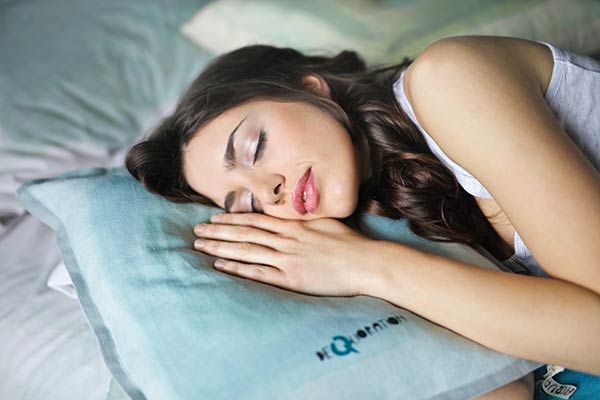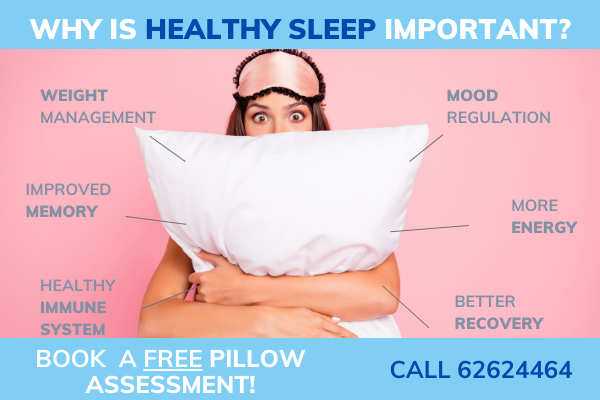Best 10 Tips for Better Sleep
March 14 – 20 is Sleep Awareness Week, so I thought it was appropriate to talk about sleep, how it affects your mind and body, and how to sleep better. Sleep is something most of us complain that we don’t get enough of. We all know that 8 hours is the magic number and that not enough sleep is bad for you… But just how bad?
Firstly, lets watch a great video from Oxford on why we sleep
The video makes a great point on the health detriments of not getting enough sleep.
• Reduced alertness
• Shortened attention span
• Slower than normal reaction time
• Poorer judgement
• Reduced decision-making skills
• Poorer memory
• Increased likelihood of moodiness and bad temper
• Reduced work efficiency
• Loss of motivation
• Long-term sleep deprivation raises your risk of developing chronic illnesses like diabetes and cardiovascular diseases
• According to Harvard Medical School, a few studies have found a link between lack of sleep and weight gain. Along with eating too much and not exercising, sleep deprivation is one of the risk factors for obesity.
• Lack of sleep lowers your levels of a hormone called leptin, which tells your brain that you’ve had enough to eat. In addition, it raises levels of a biochemical called ghrelin, which is an appetite stimulant.
• Sleep deprivation can lead to higher risk of chronic health problems like high blood pressure, heart disease, and stroke. For people with hypertension, one night without enough sleep can cause elevated blood pressure all through the next day.
Link with Chronic Pain & Sleep
More interesting to me and my line of work is that 88% of chronic pain patients have sleep problems and 53% of of these people had never had sleep problems before their chronic pain. So it pays to get the right amount of good quality sleep. You can read further about the link between Sleep and Disease Risk.
Best 10 Tips for Better Sleep
1. Get Comfortable
Your mattress and pillow make a huge difference in the way you sleep. Although the right mattress is a largely subjective issue, your pillow should fit you correctly. The wrong sized pillow can cause increased strain on the muscles and joints in your neck. Ask yourself: Do you wake up feeling refreshed or tired in the morning? Or have you ever woken with a sore neck?
Almost everyday I see someone in our clinic complaining of neck pain and most of the time they report waking up with a sore neck because their pillow is not the right fit for them. We are all different shapes and sizes, so a ‘one-size-fits-all’ approach to your pillow is normally a bad idea. If you are a side-sleeper the height of the pillow is most important and depends on your physical build. You should have your pillow assessed by your physiotherapist if you are waking up in pain or not feeling rested in the morning.
Your physio will be able to check if your pillow is right for you and fit a correct sized pillow if yours in inappropriate. If you are a back sleeper this is less important, but few people sleep solely on their back all night. Lastly, don’t get me started on tummy sleepers… unless you have a hole cut into your mattress to breathe, you will have your head turned all night. Its OK when you’re 5, but not as an adult.
2. Don’t worry if you don’t sleep – you are not alone!!
Sleep should be automatic and efforts to initiate sleep can be counterproductive if you focus on it. The more you worry about not sleeping, the less likely you are to fall asleep. If 20 minutes has passed, get up and sit in a dark, quiet room. Wait til you feel tired and then try getting back into bed.
[bctt tweet=”Can’t Sleep? If 20 minutes has passed, get up and sit in a dark, quiet room. Wait til you feel tired and then try getting back into bed.” username=”SSPhysiotherapy”]
3. Deal with your racing mind
You need to allow time to unwind and put the day to rest. Use relaxation or imagery can assist with this. Worrying about the stresses of the next day like work, finances or study will inhibit your ability to fall asleep.
4. Bedtime rituals for better sleep
Everyone’s bedtime ritual is different, but your routine should be consistent. You brain become used to the ritual and prepares your body and mind for sleeping. If you have kids then you know how important a bedtime ritual is. What many of us don’t know is that a ritual is still important even in adulthood for readying the mind for sleep. This routine helps set your body’s internal clock which help regulate your sleep.
5. Watch what you’re eating and drinking

Don’t eat large amounts before bed, or drink alot of alcohol. Watch that cup of coffee, tea or even green tea so you can avoid the stimulating effects of caffeine. A full stomach requires digestion and eating before bed can disturb your sleep. According to research, alcohol does allow healthy people to fall asleep quicker and sleep more deeply for a while, but it reduces rapid eye movement (REM) sleep. And the more you drink before bed, the more pronounced these effects. Disruptions in REM sleep may cause daytime drowsiness and poor concentration.
6. Monitor Your Screen Time

Try not to watch stimulating TV or do computer-based activities before bedtime. The blue light emitted by your phone, tablet, computer or TV is especially disruptive to your sleep. You can minimize the impact by using devices with smaller screens, turning the brightness down, or (as I am doing now) use light-altering software such as “f.lux” to alter your computer screen to emit a more red/orange colour. This red/orange colour is less stimulating to the brain and reduces the effects you would experience with the normal screen colouring.
7. Carbohydrate snack for better sleep
You can try eating light carbohydrate snacks, or a warm milk drink. This will mainly help you feel satisfied, relaxed and content. In turn, this will help with you sleeping well.
8. Relaxing Music or Reading
Try listening to relaxing music or read a good book. Once again, this is a good trick to help you fall asleep. Listening to relaxing music or reading a good book can help you forget the daytime stresses and clear your mind. Reading puts me to sleep in seconds!
9. Time in Bed
Try not to spend excessive time in bed. Multiple naps or excessive time in bed is counter-productive. Irregular timing of retiring to and/or arising from bed can disturb your circadian rhythm which will negatively impact your sleep.
10. Exercise for better sleep
It sounds counter-productive to exercise when you feel tired, but exercise can boost your energy levels during the day and help give you a better night’s sleep. An American representative sample of more than 2,600 men and women, ages 18-85, found that 150 minutes of moderate to vigorous activity a week, which is the American national guideline, provided a 65% improvement in sleep quality. People also said they felt less sleepy during the day, compared to those with less physical activity. The study, in the journal Mental Health and Physical Activity, lends more evidence to mounting research showing the importance of exercise to a number of health factors.
I hope some of these tips are useful to you and will help you get more sleep so you can attack each day and be the best version of yourself.
Good-luck
References
https://www.betterhealth.vic.gov.au/health/conditionsandtreatments/sleep-deprivation
http://www.healthline.com/health/sleep-deprivation/effects-on-body
http://www.webmd.com/sleep-disorders/news/20130118/alcohol-sleep
https://sleepfoundation.org/excessivesleepiness/sleep-tools-tips/healthy-sleep-tips
http://healthysleep.med.harvard.edu/healthy/matters/consequences/sleep-and-disease-risk




A fantastic service and great follow up with newsletters